#Suppliers
Industry: Bailout? What Bailout?
TTAC has always taken pride in its outsider status, and we’ve taken pains to cover the industry from a safe distance in order to continually bring a fresh perspective to developments. As a result, we’re not always on the same page as trends in the industry at large, which tends to be far more given to wild optimism than the average TTAC analysis. But, based on a new study by Booz & Company [ PDF], it seems that the “carpocalypse” of recent years has driven the industry to a more TTAC-esque pessimism. According to responses by executives at both OEMs and suppliers, the industry generally feels that the bailout was either a missed opportunity or it didn’t do enough to address fundamental weaknesses… and as a result, executives see challenges ahead.
Japanese Parts Paralysis: Lack Of Chips For Cars Can Cost $76 Billion
When we worked on the Phaeton launch in 2001, we said it had “more computers than a small company.” It had 56. Today’s cars have anywhere between 30 and 100 computers on board. They are small microcontrollers that typically chat with each other via a CAN bus. You don’t take just any microcontroller for the job. They need to hold up to the harsh environment inside of a car. Their makers need to hold up to the harsh environment presented by the purchasing departments of automakers that squeeze them for every penny. As a result of both, there are only a few players in this field. This is the story of one of them.
GM Books $1.6b Gain On Delphi Share Sale/Pension Shell Game
As galling as the auto bailout was for many Americans, the hidden “stealth bailouts” that occurred during the government-led industry reorganization are often even more galling. Today the final chapter of one of those “stealth bailouts” has taken place, as GM has sold its stake in its spun-off supplier Delphi for $3.8b, booking a $1.6b gain on the deal. So, how is GM divorcing its former in-house supplier a stealth bailout? Back in the dark Summer of 2009, the government organized a GM-led rescue of Delphi, which had been languishing in bankruptcy since 2005 (after GM. By buying a chunk of Delphi for $2.5b of the government’s money and selling it back for a profit, GM’s helped itself to a little extra bump of public money. Oh, and did we mention that GM dropped all kind of pensions in Delphi’s lap when it spun the supplier, including workers who had never been employed by Delphi.
But that’s not the worst part: any guesses as to why GM’s stake in Delphi is suddenly worth so much more? A recovering industry, perhaps? Wrong. Shortly after GM bought back its stake in Delphi, the supplier dumped $6.5b worth of pensions onto the government’s Pension Benefit Guarantee Company, causing huge benefit cuts and hidden government costs. What did the PBGC’s stake, given as “partial compensation” for that pension dump, yield it? A cool $594m. Meanwhile, thanks to the government ‘s arguments, GM still had to top-up UAW retiree pensions, leaving non-union retirees and members of other unions out in the cold [read all about it in a just-released GAO report in PDF here]. A shell game inside of a political payoff inside of another shell game, in other words. There’s nothing to not love here…
Parts Paralysis Daily Digest, March 30
Our (not quite) daily run-down of delays, shut-downs, shortages, and postponements, triggered by the March 11 tsunami in Japan.
- Toyota will have lost production of 200,000 vehicles by Friday. The Nikkei [sub]
- Toyota says that 300 dealerships out of a total of 810 in North Japan have been damaged by the earthquake. The Nikkei [sub]
- Nissan figures its Chinese output will be about 10 lower than planned in April as supply chain disruptions hinder operations. The Dongfeng Nissan joint venture will idle plants on weekends until mid-April, but will continue doing overtime on weekdays. Dongfeng Nissan has trouble getting parts from Hitachi. The Nikkei [sub]
Japanese Parts Paralysis Now Affecting China
“Production at a Nissan Motor plant in China dwindled dramatically two weeks after Japan’s earthquake and tsunami disrupted the supply of key auto parts,” reports China’s People’s Daily, citing “sources with the company.”
In a land where alleged spokespeople of a company get a heart attack and hang up when a reporter calls, those sources turned out to be workers at the Dongfeng Nissan joint venture in central China’s Hubei Province. “We used to assemble 304 cars a day, but today our plan is set at 82,” said a worker.
First Facts Emerge In Japanese Parts Paralysis
So far, it had been clear that the March 11 earthquake and tsunami would create big problems for the auto industry in Japan in particular and worldwide in general. When asked when, where, and how much, all we received were shrugging shoulders when taking to a westernized counterpart, or an “eeeh” or the customary sucking of air through the teeth when talking to an old school Japanese. Now finally, the first facts emerge.
Parts Paranoia Daily Digest, March 24
Our daily run-down of delays, shut-downs, shortages, and postponements, triggered by the March 11 tsunami in Japan.
- Toyota informed its U.S. dealers and workers to expect production slowdowns due to parts shortages. “Today, we communicated to team members, associates and dealers here that some production interruptions in North America are likely. It’s too early to predict location or duration,” Toyota said in a statement. Most, but not all of the parts for vehicles built in North America are sourced here. Wall Street Journal
- Toyota expects to idle its pickup truck assembly plant south of San Antonio. “We are informing our team members that, with the situation over in Japan, it is likely that we will see some nonproduction days coming,” Craig Mullenbach, spokesman for Toyota’s San Antonio plant, said. Mullenbach added that parts needed to build the full-sized Tundra and mid-sized Tacoma pickup truck in San Antonio are running out. Reuters
- Honda will suspend car production at its Japanese factories until at least April 3. Honda will temporarily transfer some functions such as car development and procurement out of its badly damaged R&D center in Tochigi. Reuters
Bosch Creates 24,000 New Jobs. In China
The world’s largest automotive supplier, Bosch, is investing big into the world’s largest car market, China. The company has 283,000 employees worldwide. 26,000 of them work in China. Soon, that n umber will nearly double to 50,000, reports Bosch’s hometown paper, the Stuttgarter Nachrichten.
Parts Paralysis Daily Digest, March 23
Our daily run-down of delays, shut-downs, shortages, and postponements.
- Toyota will delay the introduction of the wagon version of the Prius hybrid in Japan. A launch event was planned for late April. This event is cancelled; a new date has not been set. The Nikkei [sub].
- Toyota will also delay the minivan version of the Prius, Reuters adds.
Japan's Auto Production Hit By Parts Paralysis
After a long weekend (Monday was Spring Equinox), Japan came back to work today. Most of the Japanese auto industry did not.
Japan’s largest automaker Toyota, and Japan’s third largest, Honda, won’t be making any cars this week. Japan’s auto production is paralyzed.
A Rare Glimpse Into The Cracks In The Japanese Supply Base
For days, I have been trying to get a clearer picture of what is really going on outside of the largely intact gates of the major Japanese carmakers. Nobody is talking. Most keep mum because they don’t know. Some don’t talk because they don’t want to.
Now there is a rare glimpse into the matter. It has been written by Kevin Krolicki with the help of two colleagues at Reuters. Kevin is the Detroit bureau chief of Reuters. He writes about cars a lot. Comes with the territory. Kevin and I share a common affliction: A Japanese wife. A week ago, Kevin found himself going against the stream of expats that were mobbing the planes out of Japan.
Two days after the quake, Kevin went from Detroit to Tokyo to help the team of Reuters reporters in Japan.
Japans Auto Industry Unites To Cope With Disaster – And The Unknown
There are gallant, yet disturbing news coming from Japan’s automaker front. Japanese automakers unite to cope with the disaster. “Automakers have set up a joint headquarters for support measures and are sharing damage reports and other information,” reports The Nikkei [sub]. “They have a plan that aims to provide more effective support by dividing their forces by region and building teams on the fly. Staff from, say, Toyota may end up lending a hand to a parts maker that does business with, say, Nissan.” According to the Nikkei, Japan’s automakers also have come to a “silent understanding” to not to compete for who might be first to restart production. What is causing the sudden unity amongst former bitter rivals?
Japan Quake: Big Automakers Hit, Little Guys Spared (Except Subaru)
Amidst the rubble of earthquake and tsunami-racked Japan, a strange phenomenon: Three of the smallest local automakers suffered no interruption in production, while the very largest seemed to be hit the hardest. Toyota, Honda, and Nissan have all suffered some kind of production interruption since the quake hit, while Mazda, Suzuki and Mitsubishi remain untouched according to Automotive News [sub]. In a tragedy like this, some might be tempted to ascribe this division of suffering to some universal sense of justice, a cosmic leveling of Japan’s automotive playing field. But, as the map above proves, this twist of fate is purely geographic… Mazda, Mitsubishi and Suzuki happen to have all of their plants located well south of the affected area near Sendai. Besides, Subaru, one of Japan’s smallest automakers, closed five factories. There’s no making sense of a mess like this…
Attention Truckers: Honda Will Milk You
If you only get excited by the sausage of a car and not by the sausage making of a car factory, hop on to the next article, because this will utterly bore you. Everybody gone? Alright, talking to myself again. We’ve always said, not really in jest, that two industries profit the most from just in time manufacturing: The real estate industry and the trucking industry. Honda wants some of that money.
Car Industry Picks Up Steam, Runs Out Of Parts
Today, none of the 50,000 workers employed at Volkswagen’s Wolfsburg plant have to punch in at work. The factory is waiting for parts. You may think that is their good or tough luck.
Not so, says Dan Sharkey, a Detroit lawyer who counts many auto suppliers as his clients. The shortages affect us all. Parts shortages are “”beyond a trend; it’s an epidemic,” Sharkey told Automotive News [sub]. These shortages are stopping assembly lines around the world, just when demand is beginning to pick up.
Here is a current snapshot, taken by Automotive News:




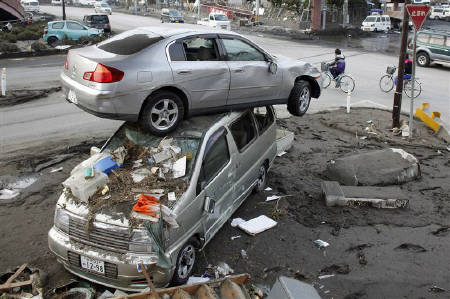


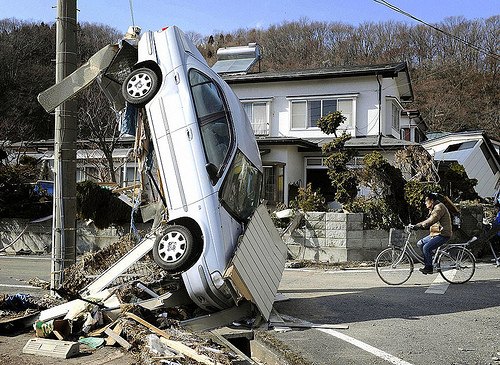
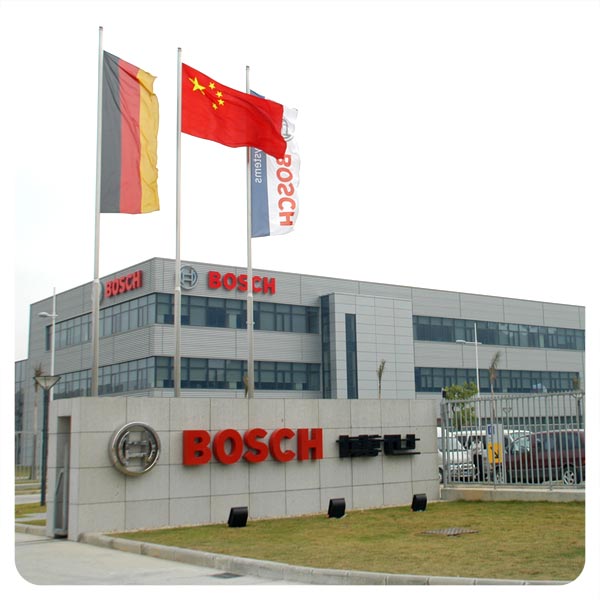
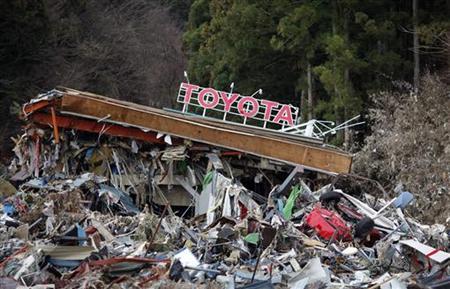
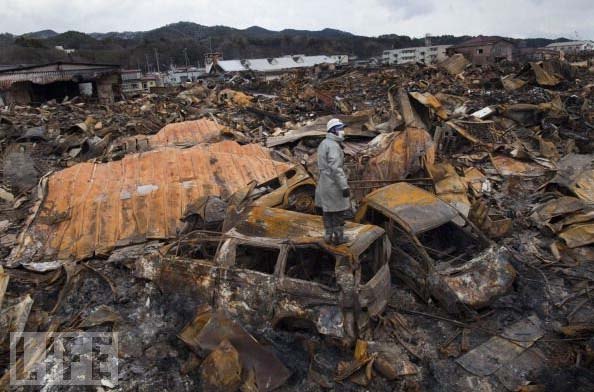
















Recent Comments